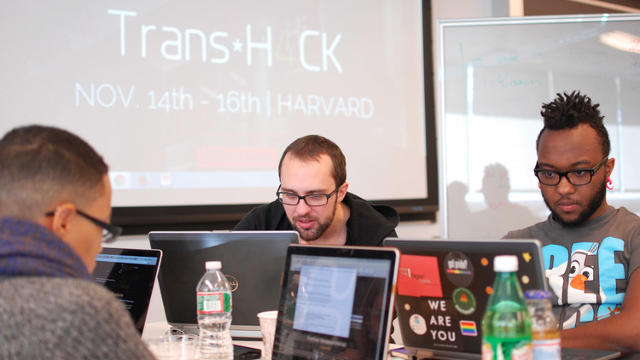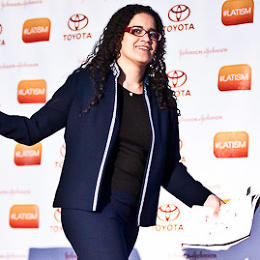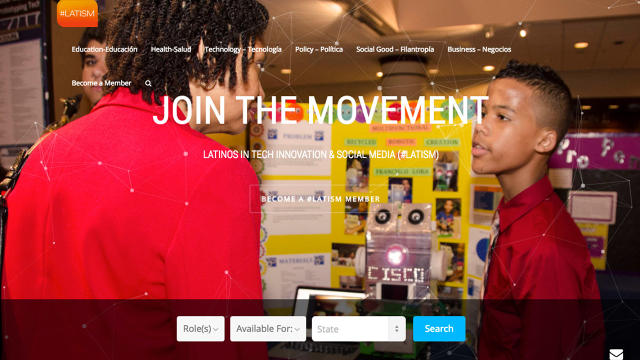The Activist Push To Force Silicon Valley To Move Faster On Diversity
Silicon Valley is a world of mirrors and myths. Every company has a creation story; most have an eccentric leader; some have had entire books written about them. The most pervasive myth out there, however, is technology’s egalitarian ethos. If you are a smart coder, passionate worker, and innovative thinker, you will go far in the world of technology, or so they say.
In reality, that’s not true. Talented people are left behind every day, many simply because they don’t have the same kind of access as Ivy League brogramers. Over the last few years there’s been an increased campaign to bring more diversity to the tech scene, and it’s gotten press and caused some companies to change their policies. The change, however, is still incremental.
A great deal of this cultural shift is thanks to advocacy groups speaking out for underrepresented demographics. Many of the organizations have been around for years—nearly decades—with the sole intent of helping people get better representation in the technology sector. Even with increased awareness, these groups are still fighting to be heard.
Connecting A Community
Kortney Ryan Ziegler, for example, is at the helm of the Oakland-based group TRANS*H4CK. Ziegler has a long history of trans activism before entering into tech, working for years in the digital arts and filmmaking industry. Some years back Ziegler “stumbled into the tech profession,” thanks to work with a brick-and-mortar business he was launching. He got involved with meet-ups, hackathons, was talking with other entrepreneurs. One thing, however stood out; “I wanted to connect with other trans people,” Ziegler says. “And that wasn’t happening.”
“I had a great time meeting with all of these tech entrepreneurs,” he adds, “but none of them were focused on queer people, LGBT people, and especially trans people.” This helped spur the idea of launching an event—like a hackathon—that focused on trans people.
Since 2013, when Ziegler first began the TRANS*H4CK project, the organization has ballooned to host numerous events, connect hundreds of people, and even attract the attention of tech heavyweights. Last year the organization received an $85,000 grant from Marc Andreessen and his wife Laura Arrillaga-Andreessen. Ziegler used the funds to build up digital infrastructure, making it possible to host digital hackathons. When it first began, TRANS*H4ACK was conceived as a one-off event. Thanks to the vociferous response, Ziegler realized it needed to become something bigger. The demand was truly there; “We’ve been able to spark conversations that haven’t been happening,” he says.

Through the hackathons, numerous projects and apps have been built aimed at people in the trans community. Not only that, big companies like GitHub and institutions like Harvard have sponsored TRANS*H4CK events. Next month the organization will host avirtual conference and demo day for trans people in tech.
LATISM is another nonprofit group aimed at the technology industry. It works to connect Latino entrepreneurs with greater resources. Like TRANS*H4CK, it’s meant to be a digital hub for people in a certain community to connect, and it was founded from a desire for better representation. “I started LATISM out of anger,” founder Ana Roca-Castro says. In the mid-2000s she left a job at the United Nations to build a small software development shop. But she found it difficult to connect with anyone in the technology scene; being both a woman and a Latina isolated her from the predominately white male culture. She founded LATISM as a way to “build more awareness.” (Though she is the founder and still heavily involved, Roca-Castro is no longer the director of the program.) The name stands for “Latinos in Tech Innovation and Social Media.”

Over the last nearly 10 years, the group grew to represent thousands of entrepreneurs in the technology and social media scene hoping to find networking opportunities. Roca-Castro knew she wanted to build a community of some sort, but she wasn’t sure how or what kind. Over time LATISM became, as she described it, “a tool to help empower the community through tech innovation and social media.” It hosts events and connects latino entrepreneurs to “amplify our voices,” as well as offer a vibrant online forum for members to connect. There’s even a yearly gala at South by Southwest, which Roca-Casto boasts is attended by some of the most important venture capitalists in the country.
Organization like LATISM and TRANS*H4CK were founded because of the need for dialog and internal tools. It was also a training ground to bring about great products and entrepreneurs from within oft-neglected communities. As Roca-Castro sees it, it was a culture issue. “It’s hard to come out of your comfort zone and show that you’re here and that you’re an engineer and that you have a great idea,” she says. Networking in technology is most definitely a game of talking yourself up and knowing the right people. Many minorities have difficulty entering into this world. “We have that imposter syndrome,” she says.
LATISM helps teach its members to self advocate, but also hosts events where they feel safer pitching their concepts. This idea is “to build a pipeline,” Roca-Castro says.
Debunking Myths
“Pipeline” is a hot word in the technology space today. While tech’s diversity travails have been showcased for years, they’ve always been rationalized by the idea that there isn’t a sustainable pipeline of diverse candidates. Facebook is the most recent perpetrator of this explanation.
The truth is, however, that there is a vibrant and massive arsenal of technical talent out there that are not white cis-gendered males. GitHub’s VP of social impact Nicole Sanchez took this to task in a Medium post, where she called this pipeline myth “one of the laziest analyses of this sector’s lack of diversity.” The problem is not that there aren’t viable candidates, but that the technology industry has overlooked diverse candidates for years.
Organizations like LATISM and TRANS*H4CK work to amplify this truth. Their programs connect members to create solidarity while also trying to bring about visibility of their members’ work. The uncomfortable duality is that big companies like Facebook and Twitter take great pains to show they care about diversity while their internal numbers don’t match up and advocacy organizations continue to try to get their foot in the door. The way to do this, says Roca-Castro, is to build an ecosystem of this talent. “We want to disrupt the status quo,” she says.

That duality is especially palpable for Ziegler, who noted that no venture capitalists offered support to TRANS*H4CK beyond the Andreessens. “That was an eye opener for me,” he says; “I think a lot of people are paying lip service but not putting their money where their mouth is.” TRANS*H4CK is still going strong, however, thanks to other sponsorship programs.
Ziegler says that the program is helping bring real change to the industry. It’s “really opening up conversations that weren’t being held in tech,” he says, “shifting the language that people use.”
Roca-Castro sees this change too, but adds that with the continued lack of diverse talent in technology, big companies are “obviously not trying enough.” So programs like her’s and Ziegler’s and hundreds of others continue to do the work that the juggernauts refuse. The hope is that bigger strides will be made every day.
“Ultimately,” says Roca-Castro, “you want a world where you don’t need to build groups to feel represented.”
Fast Company , Read Full Story
(23)












